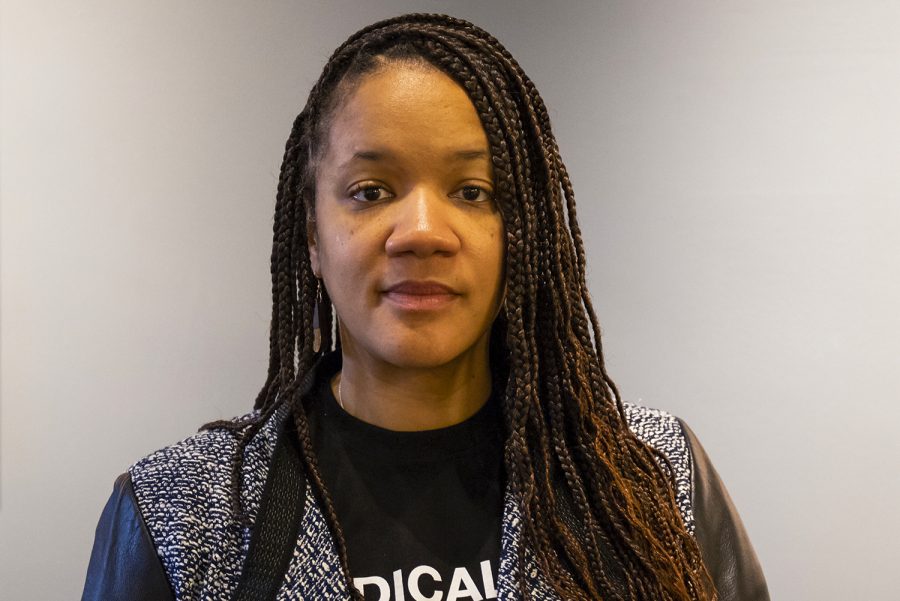Evanston approves a city-wide reparations program
Tax revenue from marijuana sales to fund reparations
Subcommittee chair Ald. Simmons spearheaded the reparation efforts
On Nov. 25, Evanston made history as the first city in the U.S. to enact a reparations program.
The City Council voted 8 to 1 to implement a 3 percent tax on recreational marijuana sold in Evanston, and to earmark up to $10 million of this revenue for reparations to black citizens.
Although this was a landmark step forward, according to 5th Ward Ald. Robin Simmons, who is chair of the reparations subcommittee, the project is still largely in its early stages.
“We have yet to establish the initiatives, and how we use the funds, and who qualifies for the funds. So we have a long road ahead of us,” said Simmons.
The subcommittee hopes to spend the first round of reparation benefits before the end of the fiscal year.
Though it still remains unclear how exactly the funds will be distributed, Simmons believes the reparations should be paid directly to black residents, rather than through supporting diversity policies or other indirect means.
“My intention is that this is a direct payment to residents that qualify. We do need to think beyond home ownership and whether it is some level to support capacity building through direct payments for technical training or other credentialing that could build capacity,” said Simmons in a recent NPR interview.
Though this isn’t necessarily a slavery reparation, to Simmons, the issues that black residents have historically faced in Evanston–redlining and Jim Crow laws–are rooted in slavery.
“The slave economy and what it did to our nation has trickled throughout urban and suburban areas across the nation, and Evanston isn’t excluded,” said Simmons. “So the clear color of my skin tone and that of my family and my neighbors keeps us from opportunities, it keeps us from education, it has us over-policed, criminalized unfairly, and therefore we aren’t able to enjoy the same livability as the rest of our neighbors in Evanston.”
Simmons also explained that recreational marijuana is a fitting source of revenue because of the destruction that over-policing, mass incarceration, and the war on drugs have inflicted on the black community.
“The inspiration to use that particular revenue was because it’s now going to be a very exciting, multibillion dollar industry that folks are building wealth off of. And it has damaged, destroyed, and traumatized the black community, which I serve,” said Simmons.
According to a Washington Post Article, Evanston reflects the country at large because the number of black residents–16.9% of the city’s population–is far from proportional to the percent who are charged with cannabis related crimes.
“Like the United States as a whole, Evanston had disproportionately policed African Americans on marijuana charges, compared with other populations: Over a 36-month period, 71 percent of those arrested for possessing cannabis and 57 percent of those issued citations were black, according to data compiled by city officials,” reported the Washington Post.
Revenue from the marijuana tax is expected to go towards addressing a wide range of issues that black Evanstonians face, such as the disparity between income, education, and life expectancy for black versus non-black Evanston residents.
2nd Ward Ald. Peter Braithwaite, the newest reparations subcommittee member, believes these reparations are important because they will help combat the decreasing number of black residents in Evanston.
“One of the big issues that we have in Evanston is that our numbers in the black community continue to decrease. And my concern is, what are we doing to retain those who want to stay, and attract others who will come?” said Braithwaite.
In addition to monetary reparations, the subcommittee believes it is important to address the emotional damage inflicted upon the black community throughout the history of the city.
“No matter how much money Ald. Rainey can drum up for us to put in a fund, if we can’t heal and unite, and get some repair in that way, some financial education, then our efforts could be in vain. We want the dollars to multiply and really uplift the black community,” said Simmons.
In order to accomplish this goal, they plan on partnering with
the Mental Health Department, the Equity Empowerment Committee, and the National Coalition of Blacks for Reparations in America.
6th Ward Ald. Tom Suffredin was the singular vote against the tax. In a bulletin to constituents, Suffredin explained that although he supports the city’s efforts to take responsibility for the role it has played in disadvantaging black residents, he took issue with the policy because of its unsure terms.
“I voted no on this because in a town full of financial needs and obligations I believe it is bad policy to dedicate tax revenue from a particular source, in unknown annual amounts, to a purpose that has yet to be determined.”
The reparations have been more contentious on a national level than within the city of Evanston.
“We see in our national climate that there is a lot of hate. And the pushback mostly came from beyond our community. Once this became a national story, I started to receive hate messages from white supremacists. There was a special watch on my home and on my family. And we took very specific safety precautions when we had our town hall, including bomb sniffing dogs,” said Simmons.
Despite this pushback, the subcommittee is convinced that this path was the right one to take and is determined to see this project through successfully.
“It was time that we did something radically different than what we had been doing. Our existing policies [have] not been sufficient,” said Simmons.







































